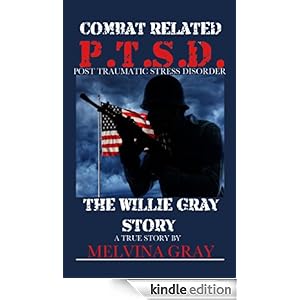
This book was fantastic, and, coupled with the last book I read, ignited a certain measure of fondness for nonfiction books. The story deals with the author, Melvina Gray, who fell in love with her future husband. Little did she know that he suffered from combat related PTSD as a result of serving during the Vietnam War.
This book is different from many that I have read, so I'm not quite for sure what criteria I should be using the critique this work. Normally, I read fiction novels. So, I view this book with a more academic mentality. In that light, this book is interesting in the fact that it brings to the surface some truly sad things about PTSD and how it effects those living with it or around it.
This book also made me realize that if one were to write their life into the pages of a book and read it, then we may be able to look at the characters in them objectively and realize how things should've happened. But the problem with that is we can only write about the parts of our lives we experience, and what we write is the moment we live in.
It was made clear to me, despite going through what I would say is quite an ordeal, Melvina's life story now and forever was changed by what many may consider to be a flawed character. This book made me realize that love can be found even in the darkest of circumstances, and that even people who are intrinsically flawed can have a beautiful effect on our lives.
The Willie Gray Story is by no means a fairy tale, and it's not meant to be. It's life. The only difference between Melvina Gray and Willie Gray is that the Willie Gray Story ended when the book ended, but not entirely. His story had a great effect on Melvina and Jamar, their son. So, while his story may come the close that we all must meet, Melvina's and Jamar's story will forever be affected by that. Through their experiences, Willie, despite never having met me, also affected my life, my story.
For more information on PTSD, please visit the link below:
http://maketheconnection.net/conditions/ptsd?gclid=CjwKEAjw456hBRDQ4eqg8MzA2W0SJABI2gJ8g_VE_iY5LJnYtAWwp8v_a2_ybpPr6hXSA0SDVxRGfxoCURfw_wcB